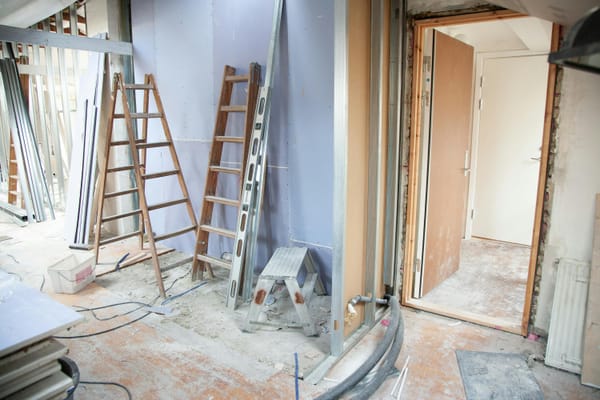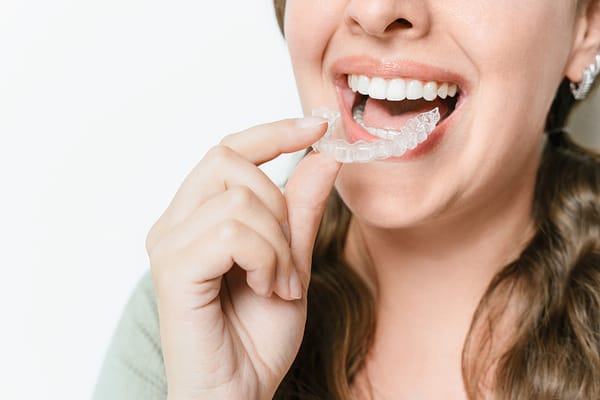Epoxy Flooring for Your Garage or Home: Pros and Cons

When it comes to upgrading your garage or home, epoxy flooring has become a popular choice for homeowners seeking a durable, attractive, and low-maintenance surface. Whether you're looking to enhance the appearance of your garage, basement, or even a high-traffic area in your home, epoxy floors offer a range of benefits. However, like any flooring option, epoxy has its pros and cons. Understanding these can help you make an informed decision on whether epoxy flooring is the right choice for your space.
In this article, we’ll dive into what epoxy flooring is, its benefits, potential drawbacks, and things you should consider before making the decision to install it in your garage or home.
What is Epoxy Flooring?
Epoxy flooring is a type of flooring that involves the application of a resin and hardener mixture that bonds to the surface beneath it. The result is a highly durable, glossy finish that is resistant to stains, chemicals, and wear. Epoxy is typically applied to concrete floors in garages, basements, warehouses, and other commercial or industrial spaces. However, its growing popularity has led to its use in residential homes as well.
Pros of Epoxy Flooring
Epoxy flooring offers several significant advantages, making it a highly sought-after option for residential and commercial spaces alike.
1. Durability and Strength
One of the biggest reasons to choose epoxy flooring is its durability. Epoxy floors are highly resistant to heavy foot traffic, abrasions, and impacts, making them perfect for spaces like garages and basements. When applied properly, epoxy can withstand extreme wear and tear, ensuring your floors last for many years.
- Resistance to Chemicals: Epoxy floors are resistant to most chemicals, including oil, gasoline, and cleaning agents, which makes them ideal for areas like garages where these substances are commonly found.
- Impact-Resistant: Heavy tools and objects can be dropped on epoxy floors without causing damage, making it a great option for spaces that are subjected to frequent physical activity.
2. Low Maintenance
Epoxy floors are incredibly easy to maintain. Once the epoxy has fully cured, the floor becomes non-porous, meaning it is less likely to absorb dirt, grime, or liquids. This makes cleaning a breeze—regular sweeping and occasional mopping is usually all that’s needed to keep the floor looking clean and shiny.
- Stain Resistance: The non-porous nature of epoxy makes it resistant to stains, and it’s easy to wipe away spills, dirt, or chemicals.
- Moisture Resistance: Epoxy floors are resistant to moisture, which makes them suitable for basements, garages, and areas that may experience humidity or occasional water exposure.
3. Aesthetic Appeal
Epoxy flooring is available in a variety of colors, patterns, and finishes, so you can customize the look to fit your style. Whether you want a glossy, professional finish or a matte, textured surface, epoxy can be tailored to suit the aesthetic of your space.
- Smooth and Shiny Finish: Epoxy floors give off a sleek, glossy appearance that can make your garage or home look more polished and professional.
- Customization: Epoxy can be combined with different decorative elements, such as colored flakes or quartz chips, to create a unique look that fits your personal preferences.
4. Affordability
Compared to other flooring options, epoxy is relatively affordable. While the initial installation cost can be higher than some DIY alternatives, the longevity and low maintenance requirements make epoxy a cost-effective choice in the long run. It’s also more affordable than high-end options like polished concrete or ceramic tiles.
- Cost-Effective: When considering the durability, low maintenance, and long lifespan of epoxy floors, the initial investment pays off over time, especially in high-traffic areas like garages.
5. Slip Resistance
Epoxy floors can be customized with additives to improve slip resistance, making them safer in environments where water or oils are present. This is particularly important in garages, kitchens, or bathrooms, where safety is a priority.
- Non-Slip Additives: You can add textured finishes or slip-resistant materials to the epoxy for better traction and to prevent slips and falls.
Cons of Epoxy Flooring
Despite its many benefits, there are some potential drawbacks to consider before deciding to install epoxy flooring in your garage or home.
1. Installation Process Can Be Time-Consuming
The installation of epoxy flooring is not a simple DIY task, especially if you want a high-quality finish. The surface preparation (cleaning, repairing cracks, and smoothing the concrete) can be labor-intensive and must be done correctly to ensure proper adhesion. Additionally, epoxy flooring requires several days to cure properly before it can be walked on or used.
- Long Curing Time: Depending on the type of epoxy used and the weather conditions, the curing time can take anywhere from 24 to 72 hours. This means your space may be unusable for several days after installation.
- Professional Installation Required: While some DIYers attempt to install epoxy floors, hiring a professional installer is recommended to achieve the best results. A poor installation job could lead to premature wear or peeling.
2. Requires Proper Surface Preparation
Epoxy requires a clean, smooth surface for proper adhesion. If your floor has cracks, stains, or dirt, it must be properly prepared before the epoxy can be applied. This can involve cleaning, repairing cracks, and sometimes even grinding the concrete surface to ensure the epoxy bonds properly.
- Surface Imperfections: If the concrete underneath isn’t prepared properly, the epoxy may not adhere well and could result in bubbling, peeling, or uneven coverage.
3. Temperature Sensitivity
Epoxy floors require a certain temperature range for proper curing. If the temperature is too low or too high, the epoxy may not set properly, leading to defects in the floor’s finish. This can be a concern in climates with extreme temperatures or if the installation is done during the wrong time of year.
- Ideal Temperature Range: Epoxy typically requires temperatures between 50°F and 90°F to cure effectively. If you live in an area with extreme temperatures, you may need to install the epoxy during certain seasons.
4. Potential for Yellowing
Over time, especially with exposure to UV rays or sunlight, some epoxy floors may begin to yellow or discolor. This is particularly true if the epoxy is applied in areas with direct sunlight. While this issue can be minimized with UV-resistant coatings, it’s something to keep in mind if your garage or home gets a lot of sunlight.
- UV Sensitivity: Some epoxies are more prone to fading or discoloration over time when exposed to UV light, especially in areas with large windows or no shading.
5. Can Be Hard to Repair
While epoxy is durable, it can also be difficult to repair if it gets damaged. If there is a significant crack or chip in the epoxy, repairing it may require reapplying the entire section, which can be a time-consuming process.
- Matching the Finish: It can be challenging to match the original finish when doing repairs, and the repaired area may not blend seamlessly with the rest of the floor.
Conclusion: Is Epoxy Flooring Right for You?
Epoxy flooring is a great choice for homeowners and business owners who want a durable, low-maintenance, and visually appealing flooring option. Its benefits—such as its strength, resistance to stains and chemicals, and customization options—make it ideal for high-traffic areas like garages, basements, or even commercial spaces. However, the installation process, surface preparation, and potential issues with UV sensitivity or repairs are important factors to consider.
Ultimately, the decision to install epoxy flooring should be based on your specific needs, the level of traffic the area receives, and how much time and effort you're willing to invest in the installation process. If you're looking for a long-lasting, low-maintenance floor that can stand up to heavy use and environmental factors, epoxy is a solid choice. Just make sure to plan carefully, hire a professional for installation if necessary, and understand both the pros and cons of epoxy before moving forward with your flooring project.



